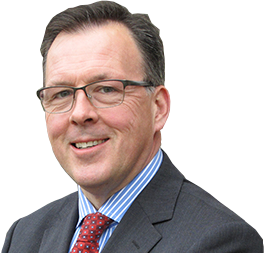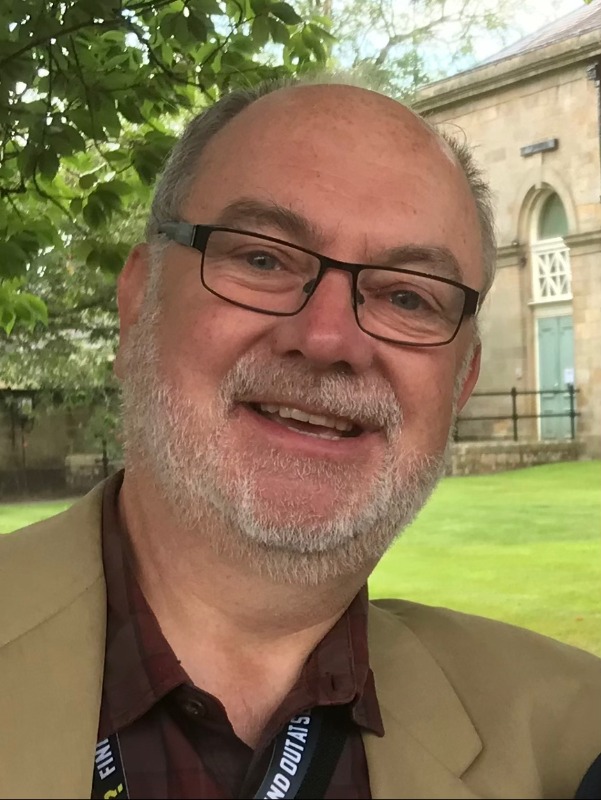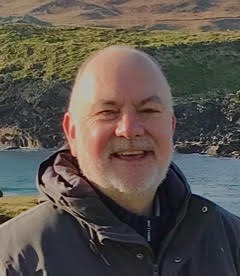search
date/time
 | Yorkshire Times A Voice of the Free Press |

Andrew Palmer
Group Editor
1:15 AM 6th April 2024
arts
Interview
The Value Of Luck: In Conversation With Martin Venning

The West Yorkshire author is sitting down to discuss his third novel The Value of Luck and tells me he started writing to stop him getting bored after a serious accident that left him spending six months in hospital.
“Anyone who has the misfortune of having that experience will know that apart from the sort of physical woes it does your head in and, after a while, you need to do something; I just started writing in a fairly random way I didn't even know I could make it or even sell the novels,” he tells me.
He stuck with it, thinking about past experiences.
.jpg)
“I was very fortunate because, as a student, I travelled quite extensively and was able to remember some of the experiences that I incorporated into the storyline.”
Once completed, he set out to independently publish The Primary Objective, which prompts him to tell me he wishes more people would engage with self-published writers to understand what is happening in the independent sector, as there are exciting ideas and writing talent waiting to be discovered.
Venning lets on with a smile that it is obvious in his first
novel that the turning point was chapter eight.
“Joking apart, I now understand what it takes to turn writing into a novel. Both of us are journalists, Andrew, and I'm sure you know that better than I do. One of the difficulties I had working in my very fledgling radio career at Radio Aire was summarising a few sentences or maybe a minute of time to put something across.”
I admit that cutting stories down to the bone isn’t conducive to suddenly turning into a novelist. As Venning succinctly points out, being a journalist means writing in very brief terms.
“Most novels have a central part and several subplots that all have to be knitted into a narrative to explain what's going on. By the time the novel is finished, it needs to be coherent, quite a skill, so I suppose, as we all do in life, I go through one stage of writing, reviewing, kicking it about a bit, getting a few people to look at the manuscript, and then eventually I get to the finished product.”
As Venning has been learning, creative writing is a serious process but a good way to download experiences and frustrations—call them what you will—from passable conventional working life.
.jpg)
Although I describe them as adventures, Venning says it is hard to categorise the genre, although he is grateful to one reviewer who came up with geopolitical thriller. “I haven't really thought of anything better. I don’t do traditional whodunit murder mysteries; however, I try to make sure that there is a sensible plot with a purpose, and what I also try to do is weave in a sort of moral element. There's plenty of adventure, like in most thrillers, with a degree of death at some stage. But first and foremost, I want readers to be entertained, and I like to leave the reader on an optimistic note if I can.”
One of the things I've learned is that, at least in my experience, writing is a very serious business these days. I discovered through writing, or creative writing, that it's actually quite a good way to sort of download experiences and frustrations—call them what you will—from a passable conventional working life.
Venning’s novels are infused with his escapades, travelling around different terrains, and in his first novel, he brings in the identity crisis that makes up the southwestern area of Asia, close to Iran.
“There are lots of relatively small groups, I'll put it as broadly as that, Andrew, that believe they are sovereign in a particular territory and have ambitions to become fully fledged states; half of them don't, of course, for example, Nagorno-Karabakh.
“That was a conflict dispute between Azerbaijan and Armenia that had gone on for so long. I think one of the factors that was so overlooked was that people in that part of the world particularly didn’t want to be part of either.”

Martin Venning
As to planning, the location is well-researched, and the storylines are original. “What I tend to do is, in my mind, sketch out a synopsis, then start to fill in the gaps. Of course, as life goes on, certain things happen—perhaps some new experience that I may fit into a new plot.”
“I would like to think there is a degree of scientific thought behind it, but it's also got to be spontaneous, and the reader needs to feel that spontaneity. Many of the characters I write about are people that I have encountered, known, or made acquaintances with.
“However, the bit I have to conjure with is thinking about how fairly ordinary people would react when thrust into extraordinary situations.
“I like to stretch myself with each book, and the particular political and personal issues of this story will, I hope, intrigue readers as well as raise questions in their minds.”
.jpg)
“Rather than having some enemy who was particularly tracking the hero, it was the main character doing something that is really good and positive for the world, but what he can't do is reconcile it with his own domestic situation. In essence, the lead character is not a hero. Having received a shocking diagnosis of his impending death as a scientist, he finds it difficult to manage his emotions. His instinct is to take control of the situation, ensuring that it unfolds according to his own terms when he is ready.
“Unfortunately, people don't have the means to say so. The idea came out of my research when I had the opportunity to talk to a couple of people who were seriously ill, and I was struck that they felt their life was theirs, in essence their property; they owned it, and they should have some control over the circumstances in which their death would occur.
“Rather like Esther Rantzen's campaign. Frankly, it takes someone of that sort of calibre to come out and say it for people to suddenly stand up and pay attention. There are arguments, of course, both in favour and against, as there are with anything; however, I think the opinions in favour, provided they are managed under certain circumstances, are pretty convincing.”
It's quite a sobering thought to think about and highlights Venning’s ability to draw on moral issues. In the current book, it’s essentially about international crime and the battle an heiress has when she suddenly comes to take control of a multimillion-pound enterprise, most of which has been founded on illegal activities.
Venning describes the moral element as being twofold: “First, what would be illegal in one country isn't necessarily illegal in another, and therefore she's quite challenged by the fact she does something that doesn't seem to be particularly wrong but is obviously considered to be highly illegal in certain places.
Secondly, like a lot of humans, she essentially wants to be liked and to be a decent person; after all, she's benefited hugely from private education funded by criminality but finds herself in a situation where she's trying to run a criminal enterprise. The story is essentially about her struggle to turn it into a legitimate business and what happens along the way. The great problem we all face today is that most scalable crime is international in nature, and the difficulty is that there are not sufficient organisations or tools for law enforcement agencies to operate to address it. There are collaborations of various sorts, but not at the same level of sophistication as the criminals, of course.”
The thematic material he uses in his book, which I suggest would make for a good TV series, is, as it happens, one of his ambitions: “I just want people to enjoy the stories, and who knows, maybe one of them might inspire someone to write a TV show based on what I've done.”
As to the fourth novel, I will have “to wait and see.” All Venning will tell me is that it is about an individual who has achieved great success in a political system and suddenly finds himself in a situation where, through a series of poor decisions, he runs out of luck.
A typical Venning formula combines the elements of adventure, suspense, and a dose of morality.
https://www.mvenning.net/